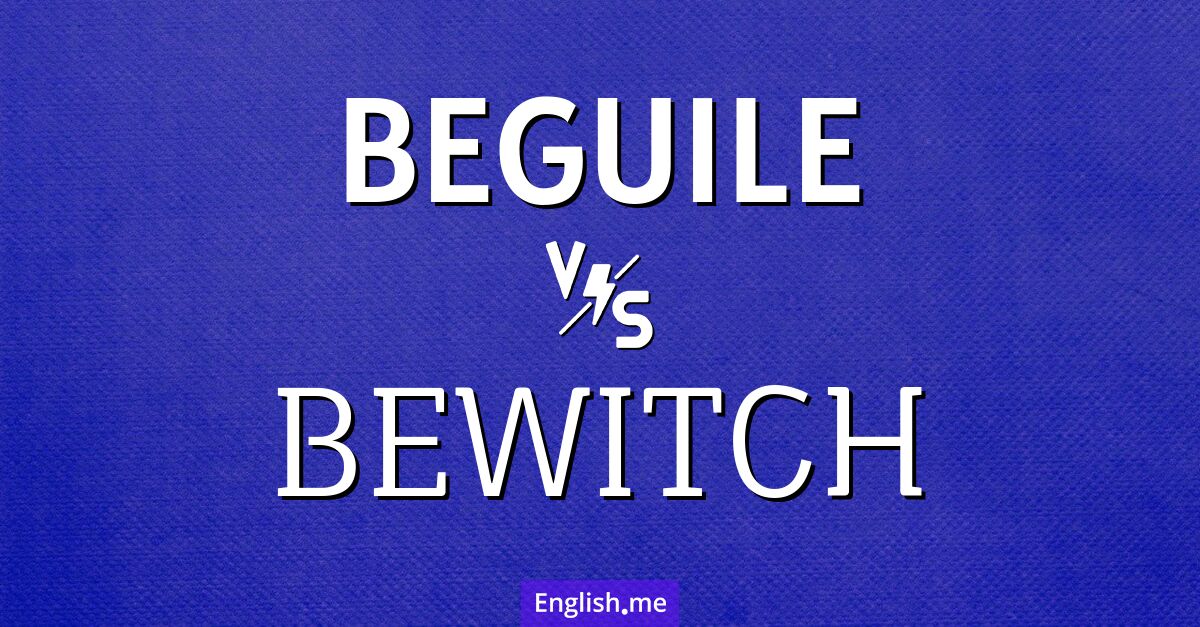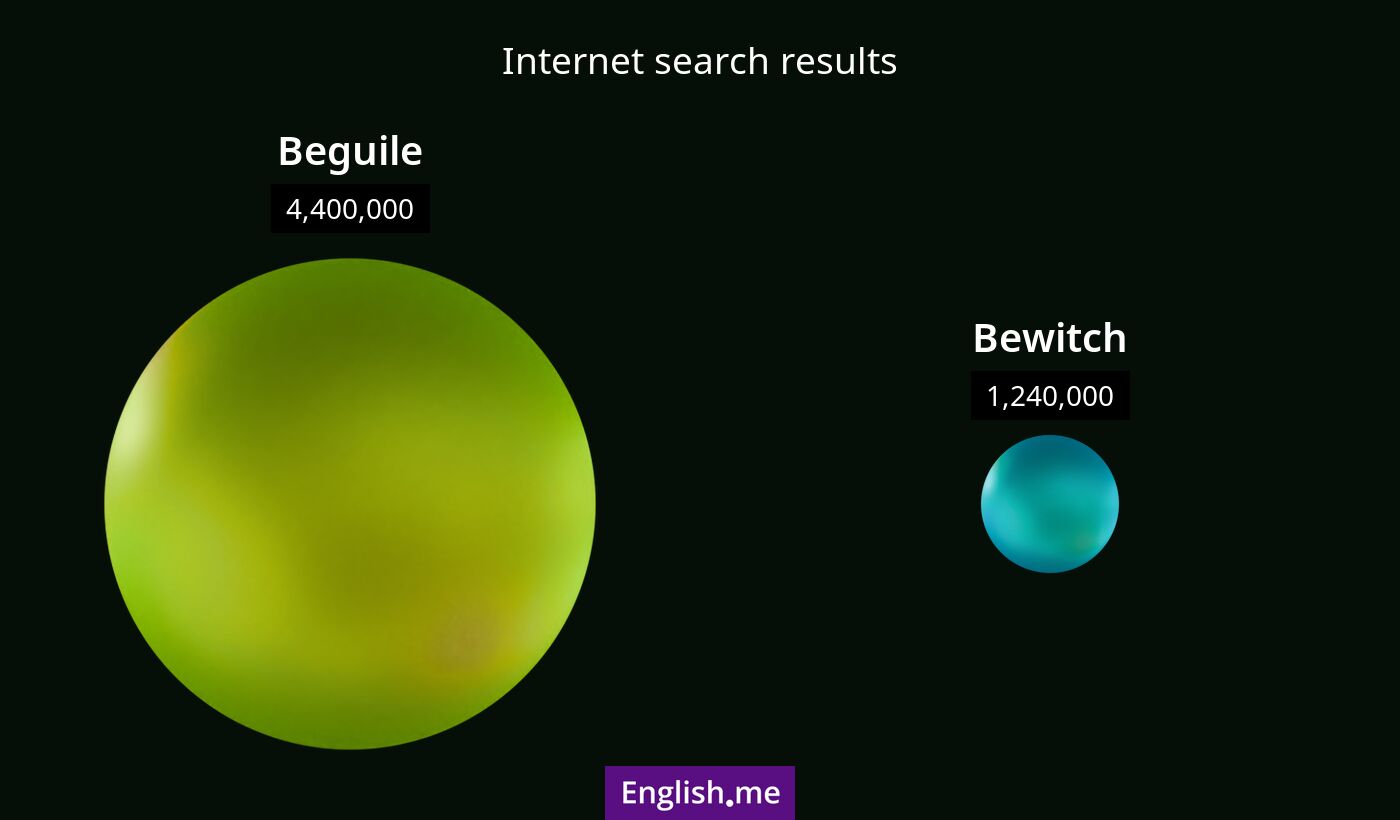Charmed and captivated: exploring "beguile" vs. "bewitch"
Reviewed and edited by  Lloyd Cooper 16/11/2024, 08:01
Lloyd Cooper 16/11/2024, 08:01
English.me team member

 What is similar?
What is similar?
Both "beguile" and "bewitch" involve charming or enchanting someone, often in a deceptive or captivating manner. They can both imply leading someone astray or attracting them in an almost magical way.
 What is different?
What is different?
While "beguile" often emphasizes deception or trickery in its enchantment, "bewitch" typically conveys a sense of magical or supernatural influence, sometimes literally referring to witchcraft.
 Which one is more common?
Which one is more common?

 Examples of usage
Examples of usage
Beguile- The conman used his charm to beguile the investors.
- She managed to beguile her classmates with an intricate tale.
- He was beguiled by her beauty and wit.
- The fairy tale describes how the prince was bewitched by the sorceress.
- Her presence was so captivating, it seemed to bewitch everyone in the room.
- He felt as if he were bewitched by the alluring melody.

 English
English español
español française
française italiano
italiano deutsche
deutsche 日本語
日本語 polski
polski česky
česky svenska
svenska Türkçe
Türkçe Nederlands
Nederlands